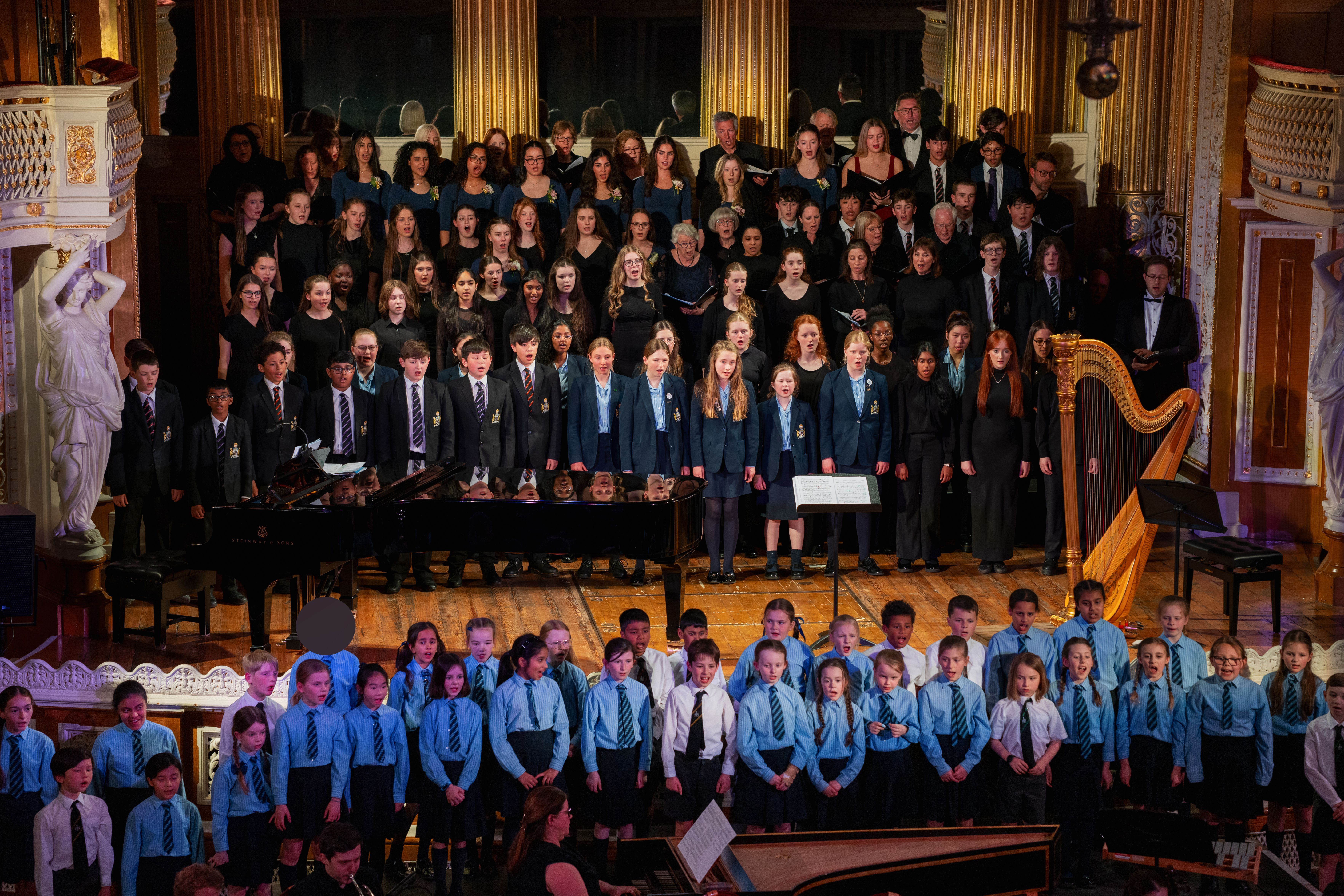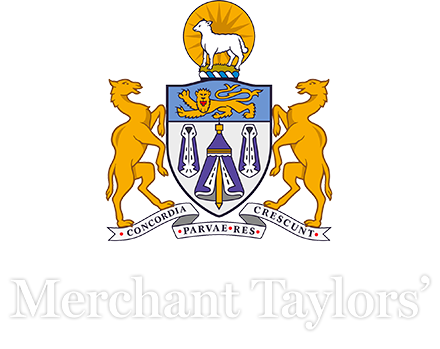Gordon Glasgow Looks Back (Leaver 1944)
When Doreen Iddon, the Schools’ Development Officer, heard that, at the age of 87, I had been awarded a Ph.D. in History at the University of Cambridge, she suggested that I wrote an article for Merchants’ Tales explaining how and why, in retirement, I came to be awarded that degree and my experiences when undertaking the work involved. I accepted her suggestion with apprehension as I was looking back more than 70 years.
I was a pupil at Merchant Taylors’ Boys’ School from 1941 to 1944 under the Headmasterships of the Rev C.F Russell and T.J.P York. It was the time of the Second World War and it was a different world. The playing fields in front of the school were in part converted into air raid shelters. The Sixth Form was very small. I was in the Upper Modern Sixth Form and it barely numbered a dozen pupils most of whom were awaiting their call-up papers. However, it meant that there was a closer relationship between pupil and teacher than would normally have been possible and we had exceptional older and experienced teachers. I am sure I did not realise that at the time I was in that way privileged. I remember, in particular, W.H. Barugh who had joined the staff from Keble College Oxford in 1924 and who was, in my time, Head of History. So far as I am aware, Barugh never published anything but he was a scholar of merit and a brilliant, inspiring teacher. Of Barugh, it has been written by the Rev H.M. Luft, who in the 1940s was a junior classics master at the school, that “his fervor and irrepressible spirit transformed history into a drama”. I found that to be true and I was among the many boys invited to his home in Crosby to share in his enthusiasm for history.
When I left Merchant Taylors’ for Emmanuel College Cambridge in 1944 to read History, to mark the occasion, Barugh presented me with an inscribed copy of A.S Turberville’s classic work, “English Man and Manners in the Eighteenth Century”, which book I treasure. He also kept in touch throughout my period at Cambridge. During University vacations I was invited to his home in Crosby. I remember having several fish and chips meals with him and listening to him talk at length about the merits of A.L Rowse’s “Spirit of English History” then only recently published and dedicated to Winston Churchill as historian and saviour of our country.
At Cambridge I obtained degrees first in History and then in Law. On leaving University I qualified as a solicitor and was in private practice for nearly 50 years and for 16 of those years was also H.M Coroner for Sefton, Knowsley and St.Helens. I finally retired in 1998. I had often dreamt of one day undertaking a piece of research of some merit and on my retirement with the support of my wife Betty, who is also a solicitor, I enrolled as a mature student at Manchester University. Under the supervision of Dr Ian Burney I researched into the role of Lancashire coroners in the nineteenth century and obtained an M.Phil degree in 2002. I then, independently of any University, widened my research field extending it to the politics of the inquest in Victorian England with the advancement of democracy. Over the next 10 years that research involved visiting record offices and libraries in North-West England and beyond. Sometimes it resulted in moments of drama. For example, on one occasion I was locked in the Archive room in the basement of Manchester Town Hall and only managed to escape, with difficulty, by the emergency fire exit ending up in the City Architects’ department to the consternation of the staff but to my relief. During the next 10 years I worked in record offices extending from the Cumbrian Archives in Carlisle Castle in the North down to the Warwick County Archives and the Shakespeare Centre at Stratford-upon-Avon and the London Archives where I worked in the House of Lords Record office and the old Public Record office. During that time I wrote up my research and many of my findings were published in academic periodicals.
I had always been aware that the Faculty of History in the University of Cambridge had, for some years back, awarded a PhD Degree by Special Regulations on the submission of published work of the required standard. In 2012, encouraged by my wife, I decided to submit to the History Faculty at the University, for their consideration, 12 published papers and books and I was in due course notified that a viva voce was required and given a date in October 2013 and also the venue for the same. Our Vicar, the Rev. Canon Dr Rod Garner, a strong supporter of Life Long Learning and familiar with most University requirements encouraged me to attend the viva voce. Therefore, my wife and I booked in at the University Arms Hotel for 3 nights and my wife arranged for assisted travel with British rail. That journey proved to be one of the traumas of my Ph.D. saga. The day before the journey a fire broke out at the University Arms Hotel. At the same time the Meteorological office issued a weather warning not to travel. It was to be the week of the Great Storm. Train services were disrupted. Assisted travel for the elderly was not operative. However, my wife and I persisted and managed, with the kind help of fellow travellers, to arrive at Cambridge. On our arrival we found that the fire at the University Arms Hotel had fortunately been confined to the top storey. We also found that the University, on hearing of my health problems , had changed the venue for the viva voce from upstairs premises to the ground floor old Porters Lodge in Downing Street. The viva voce with three Professors from Oxford, Cambridge and Huddersfield lasted just over one hour. Questions on my published work were pertinent and searching but all the examiners were courteous and kind. I was informed in January of the following year that my submission of published work had been successful and I was awarded my Doctorate at the Senate House Cambridge on 24th January 2014. The long saga of my Doctorate had ended but it was a saga in which the late W.H. Barugh and the teaching staff of Merchant Taylors’ Boys’ School in the 1940s played a significant role.
Sadly just before this article went to print in the Merchant Tales, we heard that Gordon died at home, quietly and peacefully (as he lived), on 23rd February 2016. He was 89 and had been in failing health for some considerable time. Our condolences and thoughts go out to his wife and family.
Latest News

- A Legacy in Song: Merchant Taylors’ Hosts Spectacular Gala
- Welcome Mr Philip Dearden: New Head of Merchant Taylors’ Schools
- Merchant Taylors’ RAF Cadets Achieve Second Place in National Finals
- Merchant Taylors’ Celebrates Cadet Achievements at Inspection Day
- Year 6 Pupils Shine in Romeo and Juliet Performance
Upcoming Events
- Easter Holiday Club 2025 on April 22, 2025 8:00 am
- Marvellous Merchants’ Superheroes on May 21, 2025 4:00 pm
Privacy Overview
| Cookie | Duration | Description |
|---|---|---|
| cookielawinfo-checkbox-analytics | 11 months | This cookie is set by GDPR Cookie Consent plugin. The cookie is used to store the user consent for the cookies in the category "Analytics". |
| cookielawinfo-checkbox-functional | 11 months | The cookie is set by GDPR cookie consent to record the user consent for the cookies in the category "Functional". |
| cookielawinfo-checkbox-necessary | 11 months | This cookie is set by GDPR Cookie Consent plugin. The cookies is used to store the user consent for the cookies in the category "Necessary". |
| cookielawinfo-checkbox-others | 11 months | This cookie is set by GDPR Cookie Consent plugin. The cookie is used to store the user consent for the cookies in the category "Other. |
| cookielawinfo-checkbox-performance | 11 months | This cookie is set by GDPR Cookie Consent plugin. The cookie is used to store the user consent for the cookies in the category "Performance". |
| viewed_cookie_policy | 11 months | The cookie is set by the GDPR Cookie Consent plugin and is used to store whether or not user has consented to the use of cookies. It does not store any personal data. |

